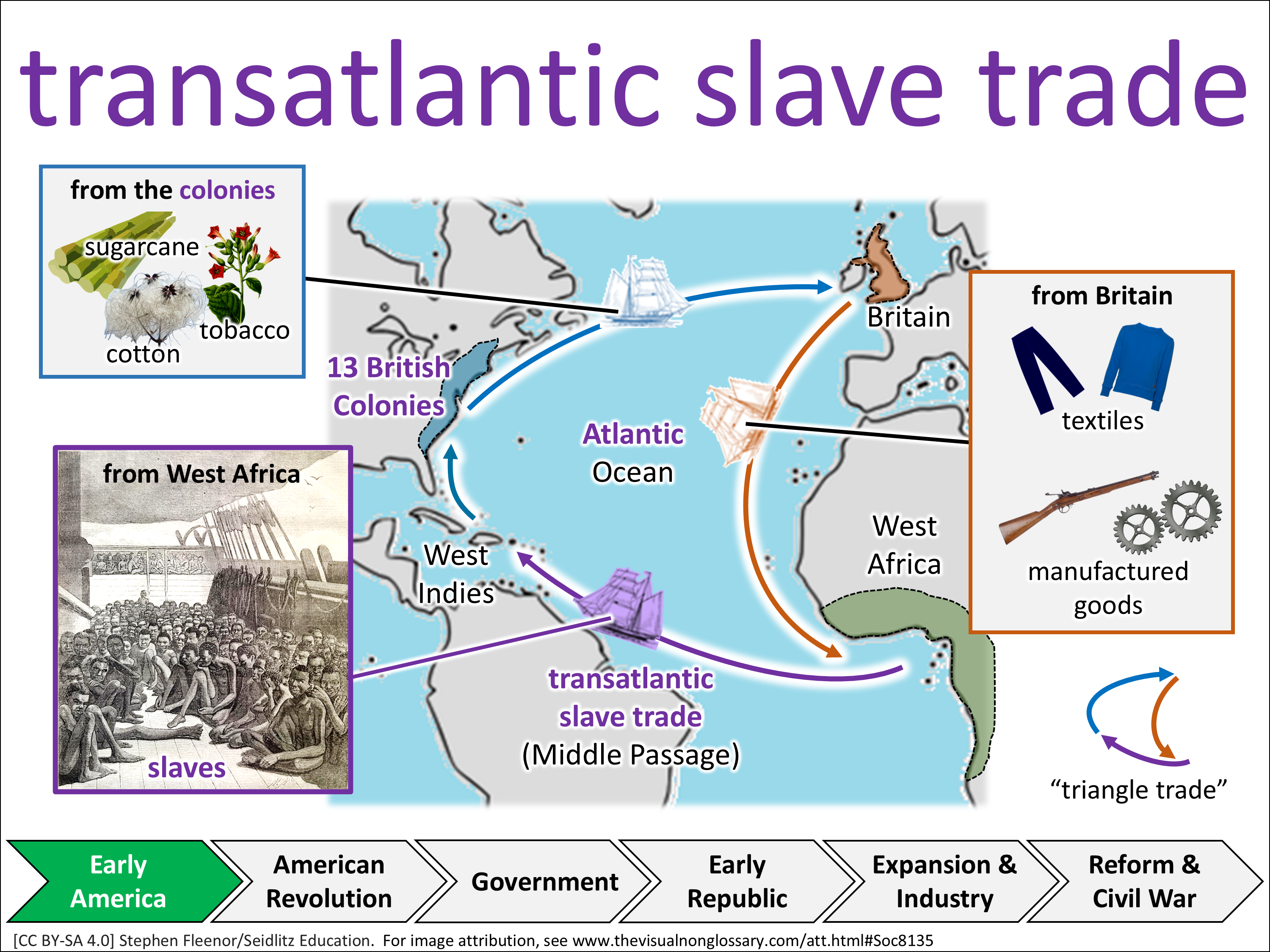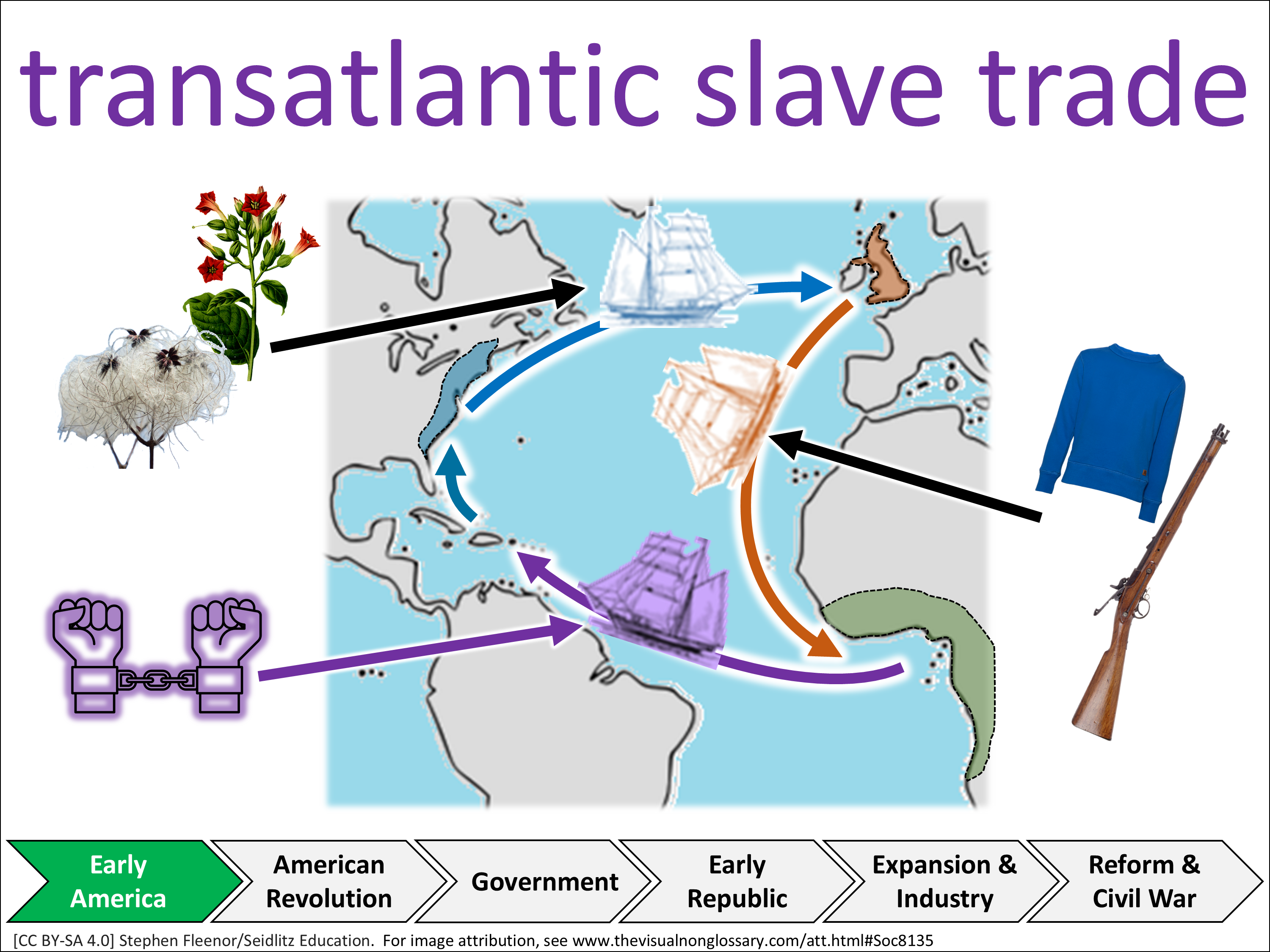History
Colonial America
Vertical Alignment
TEKS:
| 8th | 8.7(C), 8.12(B) |
Linked To
Downloads
- Visual
- Word wall visual
- Lesson Plan
- Lesson Materials
Structured Conversation Questions
Observational
Trans- means
It was called the transatlantic slave trade because...Relational
How was the transatlantic slave trade related to plantations?
The transatlantic slave trade was related to plantations because...Inferential
Which region benefitted most from the transatlantic slave trade: the 13 British Colonies, Britain, or West Africa? Why?
I think ______ benefitted most from the transatlantic slave trade because...
Please log in to comment.
Students might notice in this visual:
- Portugal and Spain were early leaders in the transatlantic slave trade.
- Millions of enslaved Africans were sent to the Americas.
- Britain became the biggest transporter of enslaved people by the 1700s.
- Enslaved people worked on plantations growing cash crops.
- The slave trade affected Europe, Africa, and the colonies in different ways.
EXTENDING THE DISCUSSION
After the observational question, randomly call on one or more students to share what they or their partner answered. Then ask the class, “Did anyone notice…?” using the suggestions above or anything else you’ve noticed.
After the observational question, randomly call on one or more students to share what they or their partner answered. Then ask the class, “Did anyone notice…?” using the suggestions above or anything else you’ve noticed.
Students might wonder:
- Why did the transatlantic slave trade last for so long?
- What were conditions like on the ships?
- How did this trade affect families in Africa?
- Did people in the colonies try to resist slavery?
- How did this system shape the future of the Americas?
EXTENDING THE DISCUSSION
After students have shared what they notice, ask the class, “Did anyone wonder…?” using the suggestions above or anything else you might think is interesting or relevant to the lesson.
After students have shared what they notice, ask the class, “Did anyone wonder…?” using the suggestions above or anything else you might think is interesting or relevant to the lesson.
Example student responses
To the observational question, Trans- means
LOW-LEVEL
I notice that people were taken from Africa and sent to the colonies.
HIGH-LEVEL
I notice that enslaved Africans were forced from West Africa to different regions like the Caribbean and the 13 British colonies, mainly to work on plantations, and that this trade involved several countries over hundreds of years.
RESPONDING TO RESPONSES
Emphasize and celebrate each student’s use of the key vocabulary to support a culture of “no wrong answers.”
Emphasize and celebrate each student’s use of the key vocabulary to support a culture of “no wrong answers.”




Ryan Meyer
This visual could be improved by... adding raw materials going to Europe
10-06-25
Stephen Fleenor
Great point - added that in. Thanks for your feedback!
10-09-25